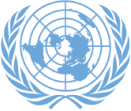Madam President,
I have the honour speak on behalf of the fourteen member States of the Caribbean Community (CARICOM). We thank you Madam President and the Permanent Representative and Mission of Sri Lanka for organizing this event so that Member States can have an opportunity to express their sorrow and solidarity and to remember the victims of the terrorist attacks that took the lives of so many innocent women, men and children on Easter Sunday in Sri Lanka. The Governments and people of the member States of CARICOM extend their deepest sympathy to the Government and people of Sri Lanka. Our thoughts and prayers are with the victims and their families.
Madam President, it is becoming clearer with each terrorist attack that terrorism is one of the defining threats to the global community in our time. In our interconnected and globalized world, no corner, no people, no group is immune. We therefore need collective action to combat this modern-day scourge. And action must include addressing the root causes of terrorism and promoting a culture of peace and respect for cultural, religious, ethnic and political diversity. No cause, however, none whatsoever, can justify resort to terrorism by whomsoever and wherever it is perpetrated.
In that regard, the Member States of CARICOM commend the work being done by the United Nations Office of Counter-Terrorism to enhance coordination and coherence across the 38 Global Counter-Terrorism entities and to strengthen the delivery of counter-terrorism capacity-building assistance to Member States, in particular to small and vulnerable States like the member States of CARICOM. We also commend the Secretary-General for prioritizing this issue and making the establishment of the Office of Counter-Terrorism the first major institutional reform that he has undertaken. We note that he will be travelling to New Zealand this coming weekend to mark the start of Ramadan among the families of the victims of the mosque attacks in Christchurch. We also note his recent commissioning of a United Nations action plan for supporting efforts to protect religious sites.
The Member States of CARICOM - democratic, multicultural societies with a strong record of tolerance and respect for political, religious, ethnic and cultural diversity - have not been immune to violent extremism and the use of digital platforms to radicalize some of our youth to become foreign terrorist fighters. Often this challenge is compounded by the evolving relationship between organized crime groups and violent gangs on the one hand and terrorist groups and radicalized individuals on the other. In response, the CARICOM Heads of Government adopted last year the CARICOM Counter-terrorism Strategy, which is based on respect for democratic values, protection of human rights and the rule of law, and fostering mutual respect and tolerance of different faiths and beliefs. Among other things, the Strategy aims at preventing violent extremism by denying terrorists the means and opportunity to carry out their activities and improving preparedness and defenses against terrorist attacks.
Today we gather to grieve with our sisters and brothers in Sri Lanka, but also to go beyond words and to recommit ourselves, each in our respective countries, to take action to address the root causes of terrorism, including by promoting a culture of peace, respect for cultural, religious and political diversity, while at the same time taking steps to prevent and punish all acts of terrorism in accordance with strengthened norms of international law and of the Charter.
I thank you, Madam President.


